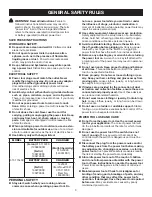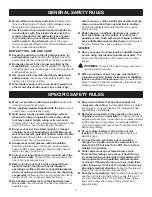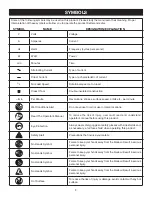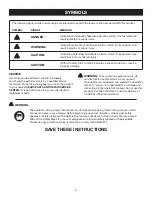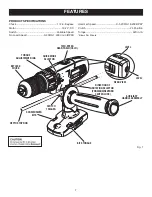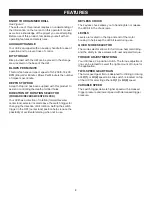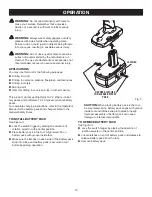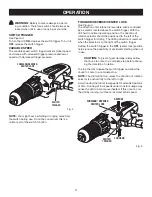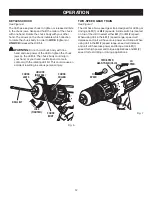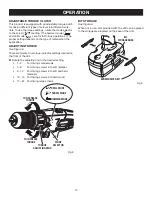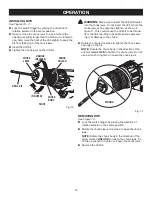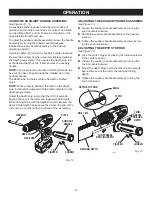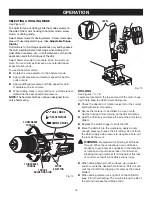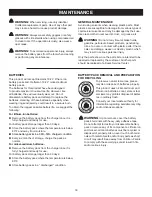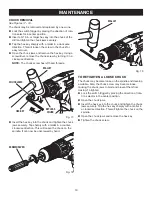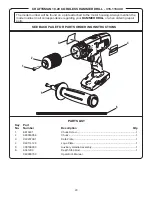
17
OPERATION
WOOD DRILLING
For maximum performance, use high speed steel bits for
wood drilling.
Select normal drilling mode.
Begin drilling at a very low speed to prevent the bit
from slipping off the starting point. Increase the speed
as the drill bit bites into the material.
When drilling through holes, place a block of wood
behind the workpiece to prevent ragged or splintered
edges on the back side of the hole.
If the bit jams in the workpiece or if the drill stalls,
stop the tool immediately. Remove the bit from the
workpiece and determine the reason for jamming.
NOTE: This drill has an electric brake. When the switch
trigger is released, the chuck stops turning. When the
brake is functioning properly, sparks will be visible through
the vent slots on the housing. This is normal and is the
action of the brake.
METAL DRILLING
For maximum performance, use high speed steel bits for
metal or steel drilling.
Select normal drilling mode.
Begin drilling at a very low speed to prevent the bit
from slipping off the starting point.
Maintain a speed and pressure which allows cutting
without overheating the bit. Applying too much pres-
sure will:
• Overheat the drill;
• Wear the bearings;
• Bend or burn bits; and
• Produce off-center or irregular-shaped holes.
When drilling large holes in metal, start with a small bit,
then finish with a larger bit. Also, lubricate the bit with
oil to improve drilling action and increase bit life.
MASONRy DRILLING
For maximum performance, use carbide-tipped masonry
impact bits when drilling holes in brick, tile, concrete, etc.
Slide adjustment button on hammer drill left for ham-
mer mode.
Apply light pressure and medium speed for best results
in brick.
Apply additional pressure for hard materials such as
concrete.
When drilling holes in tile, practice on a scrap piece to
determine the best speed and pressure. Begin drilling
at a very low speed to prevent the bit from slipping off
the starting point.
Fig. 16
LEVEL

